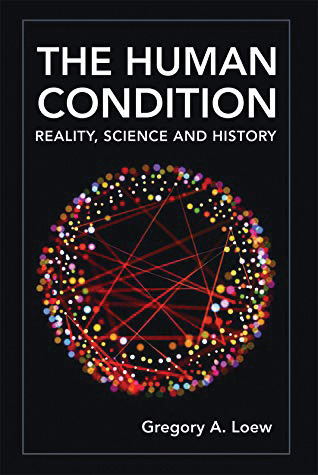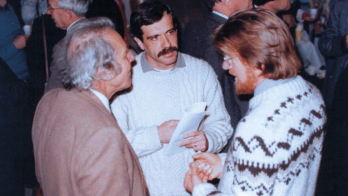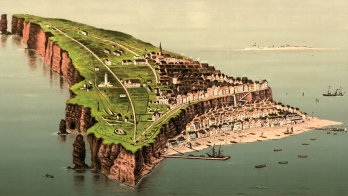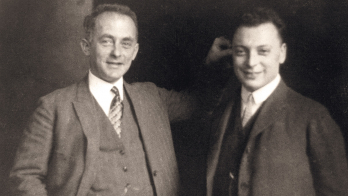
“Homo has much work left to become Sapiens,” is Gregory Loew’s catchphrase in The Human Condition: Reality, Science and History. An accelerator physicist with an illustrious 50-year-long career at the SLAC National Accelerator Laboratory in California, Loew also taught a seminar at Stanford University that ran the gamut from psychology and anthropology to international relations and arms control. His new book combines these passions.
This reviewer must admit to being inspired by the breadth of Loew’s polymathic ambition, which he has condensed into 200 colourful pages. The author compares his work to noted Israeli historian Yuval Harari’s hefty tomes Sapiens and Homo Deus, but The Human Condition is more idiosyncratic, and peppered with fascinating titbits. He points out the difficulties in connecting free will with quantum indeterminacy. He asks what came first: the electron or the electric field? Neglecting to mention the disagreement with the long-accepted age of the universe inferred from fits to the cosmic microwave background, he breathlessly slips in a revised-down value of 12.8 billion years, tacitly accepting the 2019 measurement of the Hubble constant based on observations by the Hubble Space Telescope. He even digresses momently to note the almost unique rhythmic awareness of cockatoo parrots.
But this is not a scenic drive through the nature of existence. Loew wants to be complete. He reverses from epistemology to evolution and the nature of perception, before pulling out onto the open road of mathematics and the sciences, both fundamental and social, via epigenetics, Thucydides and the Cuban missile crisis. The final chapter, which looks to the future, is really a thoughtful critique of Harari’s books, which he discovered while writing. It’s heartening to join Loew on an expansive road trip from metaphysics and physics to economic theory and realpolitik.
No scientific knowledge or mathematical training is necessary to enjoy The Human Condition, which will entertain and intrigue physicists and lay audiences alike. While some subjects, such as homosexuality, are treated with inappropriate swiftness, in that case with a rapid and highly questionable hop from Freud to Kinsey to Schopenhauer to Pope Francis, in general Loew writes with a refreshing élan. His final thought is that “if all Homo Sapientes became wiser, they would certainly be happier.” Here, he flirts with contradicting Kant, a philosopher he frequently esteems, who wrote that the cultivation of reason sooner leads to misery than happiness. But perhaps the key word is “all Homo Sapientes”. If every one of us became wiser, perhaps through the utopic initiatives advocated by Loew, we would indeed be happier.








